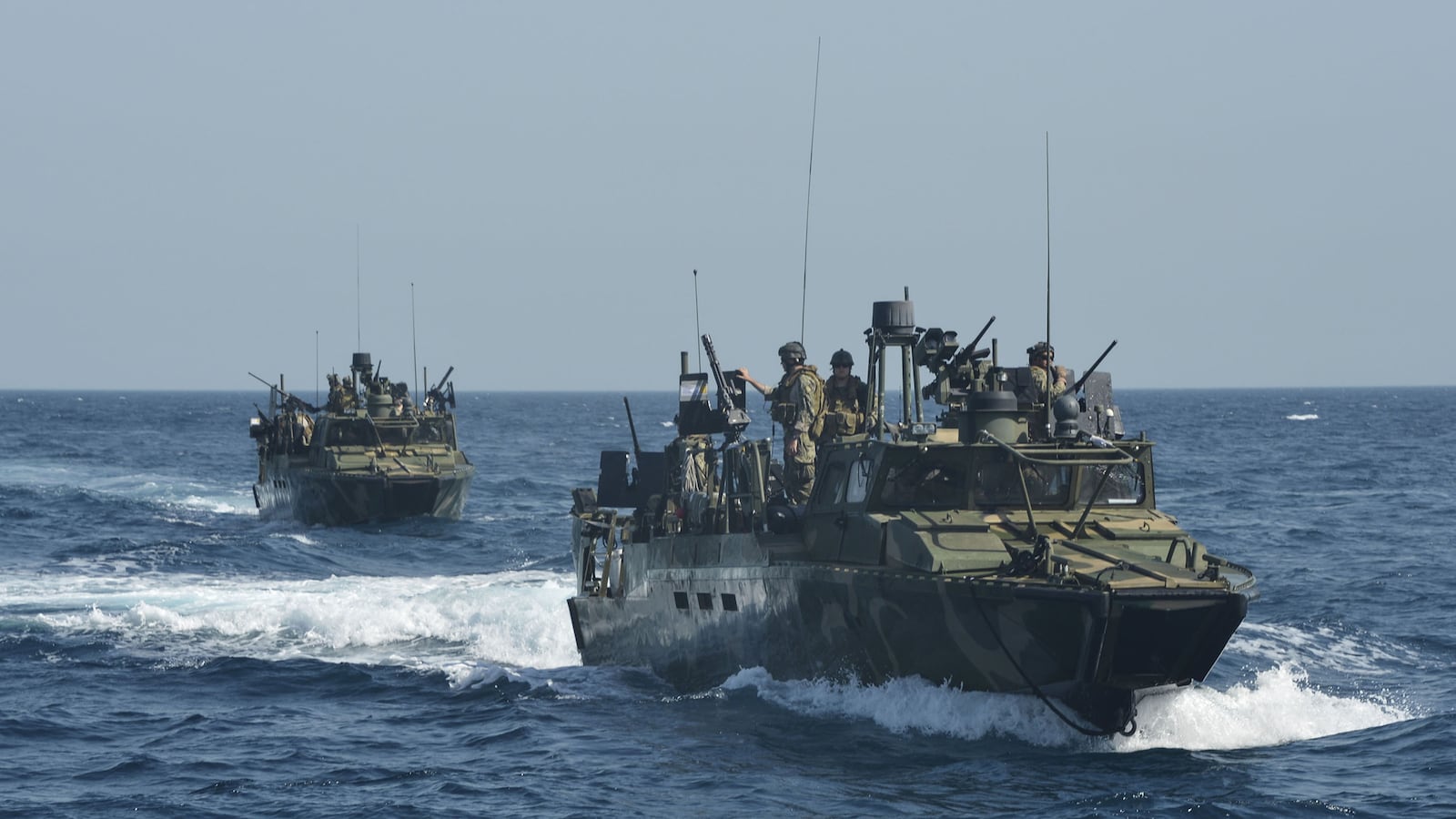Iranian Revolutionary Guard Corps forces seized two U.S. Navy patrol boats and detained 10 American sailors Tuesday after the boats allegedly strayed into Iranian waters near Tehran’s naval base on Farsi Island in the middle of the Persian Gulf.
After they claimed the sailors were “snooping” on its territory, the Iranian government released them and the boats Wednesday.
The seizure—which occured just hours before President Barack Obama delivered his final State of the Union address—is a reminder that the Persian Gulf is a dangerous place, despite the United States’ deal with Iran to dismantle the latter’s nuclear weapons program in exchange for relief from economic and military sanctions.
Obama did not mention the sailors’ detention in his speech. Nor did South Carolina Gov. Nikki Haley, who delivered the Republicans’ rebuttal.
It’s not clear why the two 50-foot-long, gun-armed patrol boats—which the Navy normally uses for river patrols but which are also useful in coastal zones—entered Iranian waters. The boats were traveling from Kuwait to Bahrain, home of the Navy’s Fifth Fleet, the Pentagon’s official news service reported Tuesday.
Once the sailors were released, the U.S. Naval Forces Central Command indicated that they did not know exactly what had happened. “The Navy will investigate the circumstances that led to the sailors’ presence in Iran,” a statement read.
The New York Times reported that one of the boats had suffered a mechanical breakdown.
The aircraft carrier USS Harry S. Truman and its escorting warships launched a rescue team shortly after commanders lost contact with the patrol boats, according to the U.S. Naval Institute’s news website, but the team reportedly turned back when Iranian forces reached the boats first.
Iran’s semi-official Press TV tweeted early Wednesday that the Iranian Revolutionary Guard Corps had “questioned” the American sailors.
This is not the first time Iran has detained—some say kidnapped—foreign sailors. In April 2015, Revolutionary Guard Corps troops seized the Danish-chartered merchant ship Maersk Tigris and its 24 crew members and held them for several days over what Iran alleged was a legal dispute between the Danish firm and an Iranian company.
In 2007, the IRGC captured 15 Royal Navy sailors from the U.K. traveling along the Shatt Al Arab waterway in the northern Persian Gulf in two small boats dispatched by the frigate HMS Cornwall. Insisting the sailors were in Iranian waters—a claim London denied—the Revolutionary Guard troops held the British sailors for 13 days.
And in 2004, Iranian forces intercepted eight U.K. personnel in two boats in the Shatt Al Arab, claiming, as they would three years later, that the Western troops were in Iranian territory. Tehran released the detainees after three days.
Changes to the U.S. Navy’s Fifth Fleet in the Persian Gulf arguably make such incidents more likely. The Fifth Fleet increasingly deploys small vessels, including missile- and gun-armed coastal patrol boats and the river craft, owing to the smaller ships’ ability to sail closer to shore and interact more directly with merchant vessels and the naval forces of Gulf countries.
While more nimble than a destroyer or cruiser, the patrol boats are also much less heavily armed and lower in the water, making them easier for attackers to board.
One Iranian opposition group blamed Tehran and Washington equally for Tuesday’s incident and pegged the boats’ seizure to Iran’s costly intervention on behalf of the regime of Syrian President Bashar al-Assad as well as elections in Iran scheduled for February.
“Having failed in Syria, forced into a retreat on the nuclear program, and facing escalating internal schism ahead of the parliamentary elections, the mullahs are fomenting a crisis by detaining the U.S. sailors to put a lid on these defeats and crises at home because they are assured of the U.S. government’s indecisive approach,” Soon Samsami, a U.S.-based representative of the National Council of Resistance of Iran, said in a statement. “The Tehran regime only understands the language of power.”






